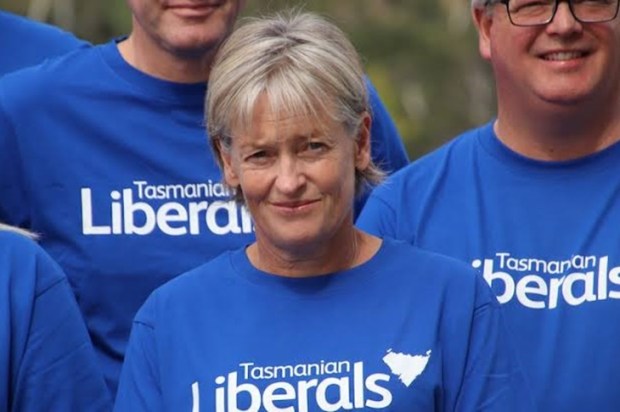There is significant confusion about how powerful the Voice will be. There are conflicting messages and disagreements between experts acting in good faith.
Some ‘Yes’ advocates have suggested that the Voice has no special powers. Some argue that the Voice is akin to existing advocacy groups, which are privately funded, lack representation or consultation rights, and are not in the Constitution. Robert French suggests that the Parliament could limit the Voice because it can prescribe the manner and form through which it makes representations. Anthony Albanese indicates that the Voice is a modest change.
Other ‘Yes’ advocates argue that the Voice is powerful. They suggest that this is the point. Some have said the Voice is necessary because symbolic recognition is inadequate. Megan Davis and George Williams go further, suggesting that the Voice is a ‘structural reform’ that would ‘redistribute public power via the Constitution’.
Legal scholars also appear split. Some suggest that parliament could limit the Voice’s powers, or that its right to make representations or be consulted is advocacy, not power. Others – such as Professor Nicholas Aroney – argue that the Voice could be a ‘new head of Commonwealth legislative power’.
So what is it? The answer is we would not know for sure unless and until the Voice’s actions are litigated. There is no consensus on precisely how powerful the Voice will be. Experts acting in good faith have reached different conclusions.
Let’s look at some of the areas in which the Voice may have power and the arguments surrounding it. Some people might like these and regard them as appropriate and necessary. Some might not. That is a personal choice. Voters are advised to do their research into these areas so they can make an informed decision.
First, the Voice can make representations to the government. The government must consider its representations. Under ordinary administrative law, the government must consider all ‘relevant’ matters, which the referendum would deem the Voice’s representations to be. This is standard in administrative law. By itself, it sounds fine.
The main argument is that the Voice could have greater representation rights than any other party because no other party has such rights enshrined in the Constitution. Given that there are often many sides to an argument, the concern is that the Voice would prioritise one viewpoint. Private sector lobby groups have no such inherent right, for example.
This should have been tightened from the outset. Legislation could seemingly not halt such representations. While Section 129(iii) empowers parliament to legislate with respect to the ‘Voice’ and its ‘powers’, this must be read next to Section 129(ii), which says that the Voice may make representations. If Parliament could legislate to curtail those representations, it would render Section 129(ii) redundant. Courts are likely to infer that that was never the intention. This could be litigated. It should have been specifically clarified from the start.
Second, the government may need to consult the Voice before making some decisions. A right to make representations implies a practical opportunity to make them, as is clear from the Woodside case. The ambit of the right to be consulted is unclear. If the Voice were not consulted, and it litigated, the court would need to determine whether, when, and on what the Voice has a consultation right.
The concern is not that the Voice’s representations are irrelevant per se. The concern is that the government seemingly is not compelled to canvas alternative viewpoints. As we can see with the conflicting views over the Voice’s powers, there is usually not just one viewpoint. Ignoring potential countervailing views can harm decision-making. How this operates is to be determined.
Third, the Voice may expand parliament’s legislative powers. This is because the amendment empowers Parliament to make laws ‘with respect to’ the Voice, which would include its representations. This may enable Parliament to legislate in areas where it previously lacked authority.
Courts would ultimately determine whether this is indeed the case. A court might treat this expansively, especially given reports that the amendment text was reportedly changed to include the focal words, which the court might interpret as evincing an intent to expand the Voice’s powers. This should have been clarified before the proposed text was put to the vote.
Fourth, the Voice would have constitutionally enshrined access and representation rights. It ‘would not be disbanded’. It would implicitly receive government funding. Other organisations are temporary, could be disbanded, are often self-funded, and are not constitutionally protected. Access rights, unless matched by a positive obligation to seek myriad viewpoints, could create power. Some might argue that this is desirable and is the point. Others might disagree.
Fifth, the government’s ability to limit the Voice’s scope or reach is in debate. Some have suggested that the Voice could talk to myriad government bodies, and its scope would be difficult to limit. Conversely, Robert French argues that the Parliament could limit the manner in which the Voice makes representations and to whom they make them. This appears to run counter to the plain text of the amendment, which imposes no such limits. Presumably, this could be subject to litigation. It would involve reconciling the subsections of the amendment text. The text should have been tighter.
The Voice thus could have power. How powerful it is exactly remains to be seen. Perhaps Parliament will find a way to limit it. Perhaps not. This leaves voters in an unenviable position.
What is clear is that the government should have done a better job drafting and analysing the proposed text before taking it to a referendum.
Peter Swan AO is a professor and Mark Humphery-Jenner is an associate professor in the University of NSW Business School.
Got something to add? Join the discussion and comment below.
Get 10 issues for just $10
Subscribe to The Spectator Australia today for the next 10 magazine issues, plus full online access, for just $10.


























Comments
Don't miss out
Join the conversation with other Spectator Australia readers. Subscribe to leave a comment.
SUBSCRIBEAlready a subscriber? Log in